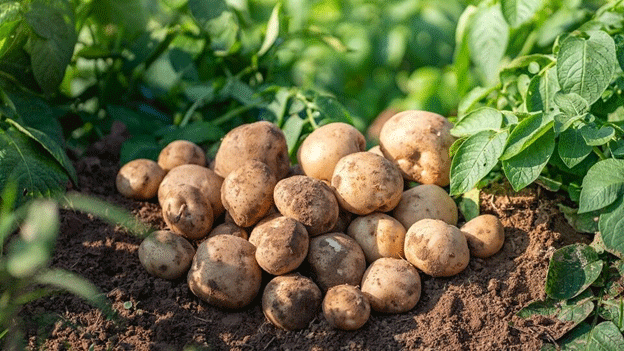Kazakhstan is grappling with a domestic potato shortage, which has led to increased imports from neighboring countries like China and Pakistan. The government’s efforts to stabilize the potato market have been complicated by significant discrepancies in the reported versus actual potato reserves across various regions. These discrepancies were highlighted during a recent government inspection, raising concerns over regional stock management.
As of March 12, official reports indicated that 41.3 thousand tons of potatoes had been contracted for government stabilization funds. However, on-ground inspections revealed that actual stock levels were far lower than reported. The discrepancies were most evident in regions such as Mangystau, where only 25 tons were verified out of 2,500 tons reported, and East Kazakhstan, where just 35 tons were confirmed out of 1,600 tons. Other regions, including Atyrau and Zhambyl, also showed significant shortfalls, with actual reserves far below the reported figures. In some regions, only a small percentage of the expected stock was available, contributing to the ongoing shortage.
In response to these discrepancies, Deputy Prime Minister Serik Zhumangarin reprimanded local officials for failing to ensure accurate reporting and monitoring of potato reserves, a critical issue for ensuring food security and market stability.
Import Strategy: Turning to China and Pakistan
To address the potato deficit, Kazakhstan has ramped up its imports from China and Pakistan, both of which offer potatoes at competitive prices. Since the beginning of the year, Kazakhstan has already imported more than 4,000 tons through KTZ EXPRESS, with an additional 700 tons expected soon. The increased imports are part of a strategy to meet the demand and stabilize the domestic market, as local production struggles to keep pace.
Kazakhstan’s decision to import potatoes comes as domestic prices for potatoes have surged by 19.3% since the start of the year, largely due to supply shortages. Other staple vegetables like cabbage have also seen price hikes, with prices rising by 23.2%.
Growing Concerns: Sustainable Domestic Production
While importing potatoes helps alleviate immediate shortages, it highlights a growing issue with domestic agricultural production and supply chain management in Kazakhstan. The discrepancies in reported reserves suggest that regional agricultural systems may be struggling to keep accurate records and maintain stock at critical times. This lack of transparency not only disrupts the market but also puts pressure on local producers who must compete with imported goods at higher prices.
To mitigate future shortages, Kazakhstan may need to invest more in modernizing agricultural practices, improving storage facilities, and enhancing monitoring systems for inventory management. Additionally, agriculture-focused infrastructure investments could help boost domestic potato production and ensure more consistent supply, reducing dependence on imports in the long term.
Kazakhstan’s reliance on potato imports from China and Pakistan underscores the vulnerabilities in its agricultural sector, especially concerning stock management and domestic production. While imports provide a temporary solution, long-term food security will require improvements in local farming practices, better inventory monitoring, and investments in sustainable agriculture to meet the growing demand for staple crops like potatoes.







